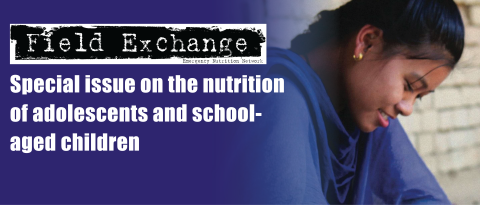Family influences on practices of pregnant adolescents in Bangladesh
Pike V, Ramage A.K, Bhardwaj A, Busch-Hallen J, Roche M.L. (2021). Family influences on health and nutrition practices of pregnant adolescents in Bangladesh. Maternal and Child Nutrition, 17(S1):e13159. Available at: https://doi.org/10.1111/mcn.13159.
Adolescent pregnancy can lead to serious risks for both mother and baby, with pregnancy and childbirth complications representing the leading cause of death for adolescents globally. However, adolescents are among those least likely to access healthcare while specific nutrition or antenatal care (ANC) guidelines to support pregnant adolescents are unavailable. This study aimed to understand the experiences and decision-making of pregnant adolescents (aged 15-19 years) in Bangladesh related to ANC and nutrition practices to inform programming for pregnant adolescents.
Peer interviewers conducted qualitative interviews with pregnant adolescents (n=48), adolescent mothers (n=48), adolescent family members (n=64) and healthcare providers (n=32) in the urban slum areas of Dhaka and the rural areas of Rangpur. Key themes explored included the perception and support of adolescent pregnancy, experiences in seeking ANC, dietary practices, sources of information and the roles of family members. Spheres of influence on adolescent pregnancy were identified through an analytical framework informed by the socio-ecological model that shows how individual behaviour is determined by personal, interpersonal, institutional, community and policy influences.
Respondents described adolescent pregnancy as overwhelming and ‘life altering’ and a time of increased isolation and reliance on family members. Most families endeavoured to provide adolescents with extra guidance and support. However, this did not always align with the advice from healthcare providers, although most acknowledged the importance of clinical support. Families greatly influenced adolescent care-seeking, health and nutritional practices with mothers and mothers-in-law emerging as the principal influencers. Husbands also often played an active role although they were more commonly involved in smaller day-to-day decisions, often in relation to spending, than in bigger ones. Families valued both good nutrition and healthcare but financial constraints were commonly described as a barrier. Adolescents valued family support but felt a loss of autonomy and agency upon becoming pregnant. Only half of pregnant adolescents began taking supplements during their first trimester and about half in their second trimester.
Further research is needed to better understand social and cultural practices, family dynamics and systems, the types of support pregnant adolescent girls want and from whom and adolescent experiences of nutrition and health during pregnancy. Youth-led research approaches should be further utilised to tailor services for pregnant adolescents. In addition, it is essential to simultaneously engage adolescents and family members, particularly mothers and mothers-in-law, in initiatives that aim to improve pregnant adolescents' agency and health behaviour. This research can also inform the development of nutrition and ANC guidelines for pregnant adolescents.


